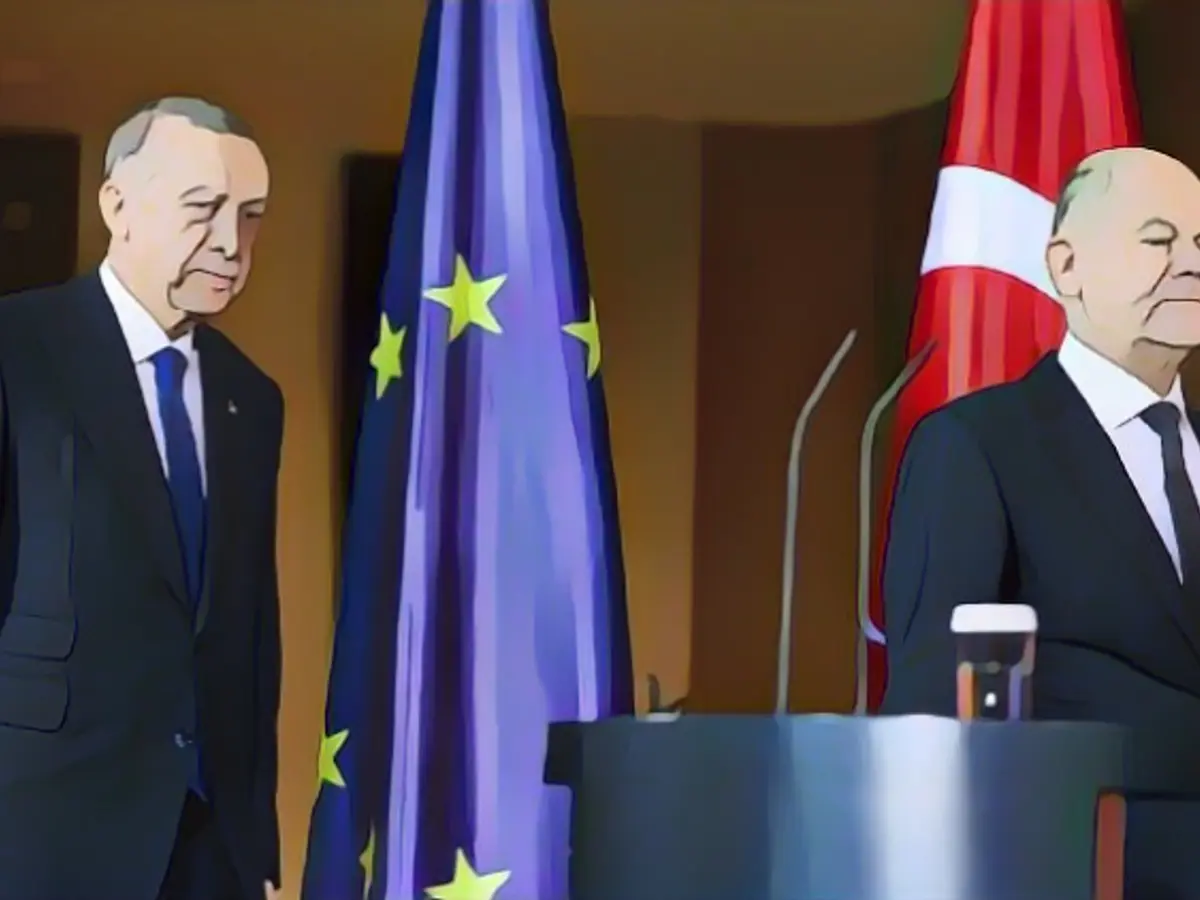Turkey's Prospects for German Arms Imports Fade
In an attempt to strengthen ties with Germany, Turkish President Erdogan expressed interest in enhanced cooperation in the field of armaments. Germany, however, has barely greenlit any significant weapons exports to its NATO ally this year. By December 3rd, only 17 applications worth 1.22 million euros were approved, with no war weapon exports in sight. This revelation stems from a response by the German Ministry of Economic Affairs to a query posed by MP Sevim Dagdelen of the Sahra Wagenknecht Alliance[1].
Prior to the 2016 coup attempt, Germany granted Turkey large-scale arms exports, including submarine components that drew severe criticism from Greece. Post-coup and Syria invasion by Turkish troops, exports significantly dwindled, hovering around low double-digit or even single-digit-million ranges for several years. Unsurprisingly, a new low has been reached in 2022[1].
Cooperation Projects and Communication Equipment
The German Ministry of Economic Affairs reported that licenses were issued for cooperation projects or NATO-related deliveries. Exports of detection, decontamination, and communication equipment, and hunting weapons, were also greenlit. Despite Turkey's hopes for ramping up cooperation in the arms sector, particularly with the acquisition of 40 Eurofighter fighter jets[1], Germany is currently not inclined to boost exports dramatically[1].
What About Saudi Arabia?
The German government has announced provisional rejections of Eurofighter deliveries to Saudi Arabia. Nevertheless, it slightly eased export restrictions for the major energy exporter in July. Through 2022, arms exports worth 13.26 million euros have received approval, including 7.41 million euros for weapons of war. The German government also approved deliveries for other regional nations like Egypt (40.31 million euros), Qatar (15.06 million euros), and the United Arab Emirates (78.24 million euros)[1].
Parliamentarian Dagdelen harshly criticized the German government's decision to supply substantial armaments to Middle Eastern war and tension zones instead of advocating for a ceasefire in Gaza. She accused the German administration of having "nothing to do with a restrictive arms export policy."
Further Reading:
Turkey's efforts to boost cooperation with Germany in the armaments sector, particularly with the acquisition of Eurofighter fighter jets, have not materialized in substantive armaments exports this year. Conversely, Germany has approved limited exports to Saudi Arabia, totaling 13.26 million euros, including war weapons, facing sharp criticism from parliamentarian Dagdelen[1].
Source:
Enrichment Insights:
- It was previously reported that Turkish defense exports have surged, largely due to the localization of the defense industry and a decrease in dependence on Western nations[1][4].
- Saudi Arabia's defense strategy prioritizes localization of defense production, aiming to reduce its reliance on Western suppliers, as part of the Vision 2030 initiative[2][5].




